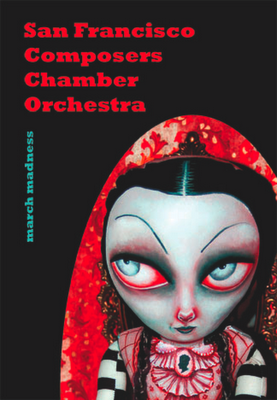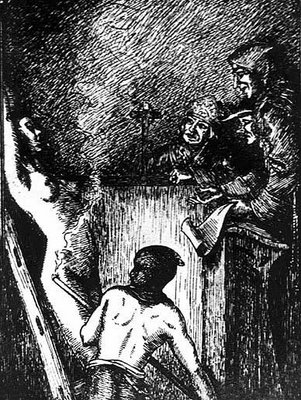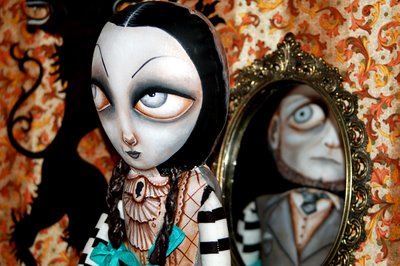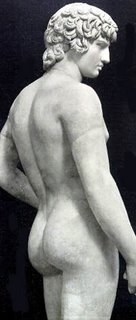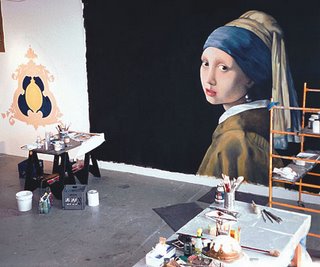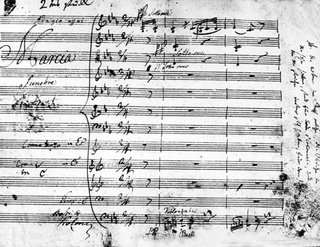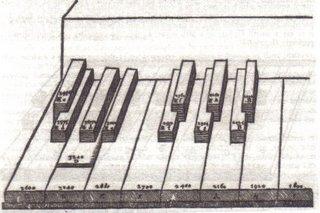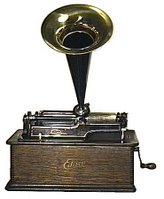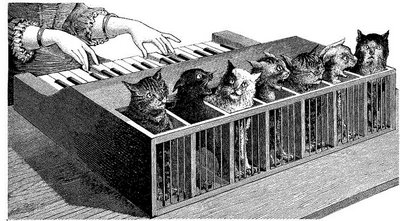
The book-larnin' study of Composition and its even poorer cousins of Species Counterpoint and ostensible Harmony didn't teach me much of what I needed to know to actually succeed as a soi-disant
composer. Here is an almost surely abridged list of what skills were needed just for
Mordake. I publish this only in the interest of scaring off some young bucks and does and reducing the competition for various grants and whatnot.
First and most important: the skill of gladhanding, the character of the cocktail boy, the flirt, the teller of and listener to jokes, the slightly-too-long buss on the cheek of the executive or artistic director of this and that, the extra squeeze, the reach-around.
Second, Diplomacy, from the lonely-hearts and sex columnist to the divas and self-styled gods and goddesses of the art world, the theater folk who know not where the stage ends, aiding with boyfriend and girlfriend problems, sometimes both at the same time, guiding and cajoling and pandering and smoothing, crying with them, holding their hands, kissing away their tears.
Third, Budgeting, the dismal science, the counting and the recounting and the negotiations with artists and technicians and vendors and theater owners, including the begging, the "ask," the days and days and days frittered away crafting and re-crafting and re-re-crafting the tedious applications and work samples, this 2 minutes of this and this 2 minutes of the other, each of which asks for everything in its own way, assembling them into packages which, like lottery tickets, become so much worthless paper, convincing other organizations to write even more grant proposals and dealing the endless rejections and still doing it more, persuading those more important than me to write letters of recommendation and quid-pro-quo letters written for them, and begging and borrowing and stealing from other theaters and artists and on.
Wait, maybe this is more important: let us not forget all aspects of marketing: designing posters and programs and web sites, convincing the shop owner to allow one in with ink-stained hands and stickum, quickly plastering over another artist's labor of love, to please not forget all the coproducers and granting organizations with their required acknowledgements of sufficient point size, dealing with mailing houses and poster distribution services and printers a click away, and English Communication, writing copy for the posters and programs as well as blogs and web sites and spam.
Ah! The Technical! Extending from the necessity of computers for everything: buying and researching and communicating and making scores and parts and mixes and recording but down to the samples and frames and media files, angry to find other people who think they know more about anything and seem maybe to be more successful, but ignoring that and writing a program to shift the pitch of John's voice so he could play the female rôle, but oh god no not to move the formants quite so much thus guaranteeing that his true womanly nature arises rather than the feared chipmunk within. And even more troubling, to write a program to deal with the terrible flashing in the documentation video, some aliasing problem between the $50K hidef camers and the DLP projectors that had to be suppressed pixel-by-pixel, replacing those flickering with their more stable and clearheaded temporal neighbors. And then on to the editing.
Finally, and only then, the writing of the music, the consideration of the art, the meaning, how it relates to thou and thine, the prettiness, the beauty, the modernist flair, the rhythms and the notes and the sounds and Thom's prepossessing noises, and plowing over the overestimated difficulties of Orchestration, parts and ranges and rehearsals and recording and the mixing in, days spent laughing over the libretto, shots of vodka and absinthe and
tequila and better tequila, time in the hot tub overlooking the garden, grazing through the organic lettuces and cooking the shrimp with so much butter you can't fucking believe it. And
this is what we all remember in the end, the joy of creation, the womanly long building climaxes, paroxysms and chills, the manly Vesuvian orgasm of performance, the slow burn & the long tail which follow until, one day, it ceases to be yours, seemingly written by another, becoming something that belongs to all humanity.
Labels: composition, mordake, music, opera
 Of Mordake, not yet released:
Of Mordake, not yet released: and the Missa, in the online review journal FAME:
and the Missa, in the online review journal FAME:

 I'm quite smug and pleased with myself as seen above in Noah Berger's shot for the Chronicle. I am
I'm quite smug and pleased with myself as seen above in Noah Berger's shot for the Chronicle. I am 
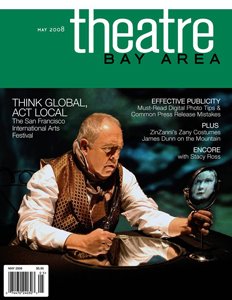
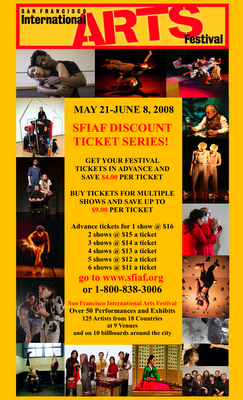
 I was informed by electronic post late last night that Lynne has been
I was informed by electronic post late last night that Lynne has been 